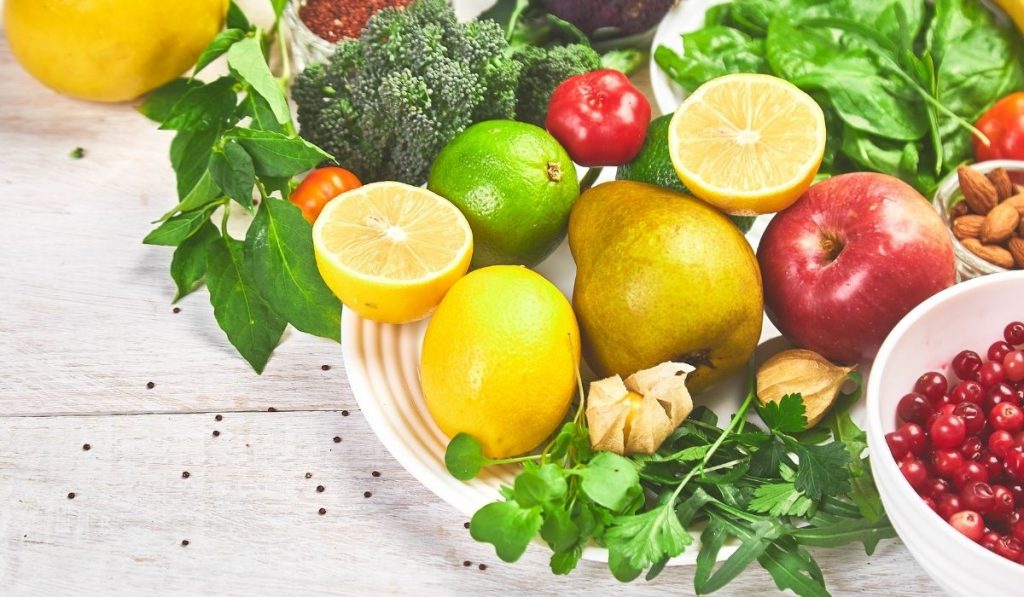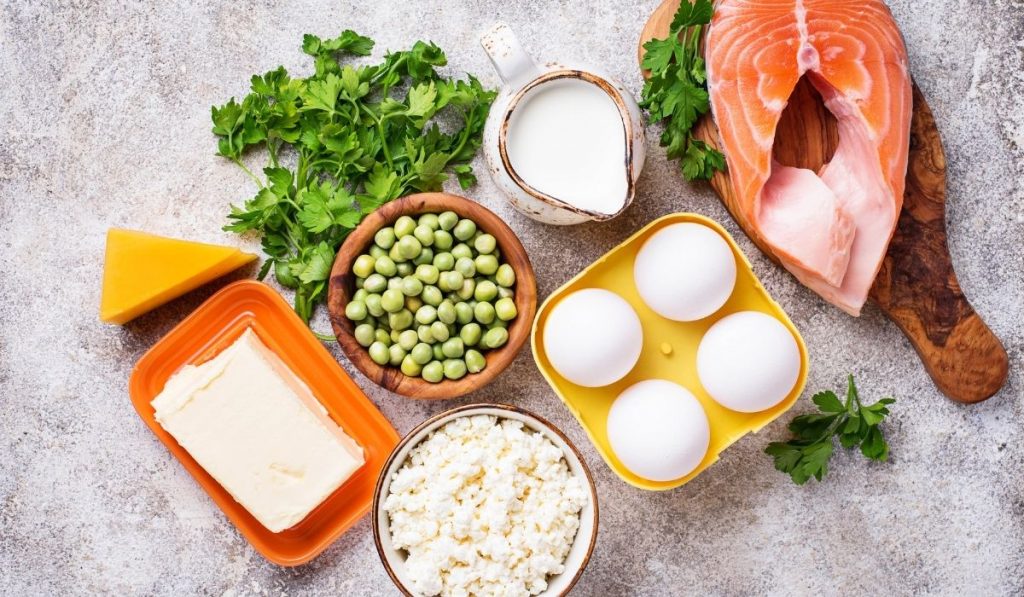Most of the US population takes food supplements, some natural and some synthetic. Either way, while looking for the perfect food supplement, you might come across terms such as “bioavailable supplements,” “bio-identical nutrients,” or “whole food vitamins.”
So what are whole food vitamins?
Whole food vitamins are vitamin supplements made from concentrated and dehydrated whole foods.
Whenever people go out looking for food supplements, they want to get the best quality. For this reason, most people will go for natural supplements. However, natural is at times overrated.
Just because the label says it’s natural doesn’t mean it’s the best. Some natural options are not as good as synthetic options and may not be as good as natural, whole food vitamins.
This article will give you a detailed explanation of whole food vitamins and all you need to know about them. Read on.

Table of Contents
What Are Whole Food Vitamins?
Whole food vitamins are commonly available in three forms.
Real Whole Food Vitamins
Real whole food vitamins are entirely food powders properly processed as the active ingredient for the supplements.
Whole food vitamins are mostly plant-based. Parts like the leaves, roots, and seeds are dried, powdered, and then encapsulated or tableted to be ready for consumption.
However, their production can be done improperly. For example, suppose the food material is put under too much heat. In that case, the vitamins in the food can degrade.
However, when produced properly, whole food vitamins have a similar nutrient level as good organic foods.
Standard USP Vitamins Fused with Whole Foods
Standard United States Pharmacopeia (USP) vitamins are available in forms combined with dried food or herbs.
Taking these vitamins is similar to taking a USP supplement with a meal. However, the only difference is that the number of dried foods and herbs in the supplement is lower than those in whole food supplements.
Standard USP Vitamins Grown in Yeast Broth
Ideally known as “fake whole food vitamins,” these vitamin supplements are added to a liquid broth containing yeast. As the yeast grows, they get incorporated into the yeast’s cell structure.
When the yeast is fully developed, the solution is dried, and the resulting powder is pressed into tablets with binders and other manufacturing additives. Therefore, these products often have a lower potency due to the volume of the other ingredients.

Why Are Vitamins Necessary?
Vitamins are organic nutrients needed by the body, but unfortunately, the human body cannot produce them naturally.
So instead, the body derives these essential nutrients from the diet. This is why you need to keep your body healthy and nourished with proper nutrition.
However, even a natural diet does not provide sufficient nutrients for the body. Therefore, nutrient supplements have been sold to people with possible nutrient deficiencies to fill in this deficit.

Are Natural and Synthetic Nutrients Different?
Synthetic nutrients have a similar chemical composition to natural nutrients. Yet your body may react differently to synthetic nutrients than it would to the nutrients in their natural form.
For example, the absorption rate in the body might be a little different from what it would be with whole foods. Natural vitamin E, for example, is known to be absorbed twice as much and faster compared to synthetic vitamin E.
When you consume whole foods, you are being exposed to a wide range of nutrients and minerals. These blends of nutrients depend on each other, and some are best absorbed with other companion nutrients. The body will optimally choose what to absorb and what to excrete in whichever way is appropriate.
But in the case of synthetic nutrients, they are less likely to be absorbed in the same manner, unless they are combined with other natural nutrients.

How Synthetic Vitamins Affect the Body
Synthetic Vitamins Don’t Contain Trace Minerals
Unlike whole food vitamins, which contain enzymes, lipids, proteins, and trace minerals, synthetic vitamins are exclusively isolated forms of duplicated nutrients.
Because of this, the following can be true.
Synthetic Fat-Soluble Vitamins Can’t be Excreted Right Away.
When vitamins are ingested, the body processes them, utilizes what it needs, and then discards the excess. However, this is not the case with fat-soluble, synthetic nutrients.
Fat-soluble vitamins like vitamins A, D, E, and K need fatty acids for proper absorption and metabolism in the body.
As soon as they are absorbed, they can be stored in the liver till the body can utilize them with the proper companion nutrients.
Since synthetic vitamins are highly concentrated versions with no fatty lipids accompanying them for proper body metabolism, they are continuously stored in the liver to wait for the best time for utilization.
Synthetic Vitamins Can Eventually Get Toxic
If the components of synthetic vitamins are continuously accumulated in the liver for future use, this chemical build-up can eventually rise to toxic levels and even cause diseases.
Therefore, you need to eat food with other nutrients, minerals, and enzymes that will help metabolize fat-soluble nutrients.

Should You Take Synthetic Vitamins?
Vitamin supplements may not be necessary for healthy and well-nourished individuals. But if you have deficiencies, synthetic vitamins can help.
However, if the situation can be reversed by simply adjusting diet, that should be the first feasible solution before advancing to vitamin supplements.
The following groups can benefit from taking synthetic vitamins:
- Vegans and vegetarians – Certain minerals and vitamins like vitamin B12 and D, iron, calcium, and zinc are often found in animal products. Therefore, this group might need to take supplements.
- Pregnant and breastfeeding women – Because of the greater need for minerals and nutrients in their bodies, these women might have to supplement their diet with specific minerals like vitamin D.
- The elderly – This is a vulnerable group with a higher risk of vitamin D deficiency. The elderly also need vitamin B12 and calcium supplements to help them maintain strong bones.
- Women of child-bearing age – Many women are encouraged to take folic acid supplements in regulated amounts to reduce risks of neural tube defects should they fall pregnant.
- People with nutrient deficiencies – Supplements are purposely there to replace the deficit whenever needed. If you think you have a deficiency, consult a doctor to find out which supplement to take.

Why You Should Take Natural Whole Food Vitamins
It is advisable to derive your vitamins from natural sources as much as possible because you will get the combinations of vitamins and minerals that are best absorbed by your body.
To do that, you do need to eat a wide range of nutrient-dense foods.
Since the nutrient composition in foods are not as high as it used to be, one might be tempted to use nutrient supplements to provide the missing nutrients in the body.
Supplements cannot fix a poor diet and should never be used in place of food.
If you need a supplement, go for the ones made from herbs, vegetables, and fruits.
Taking whole food vitamins is advantageous. Because they aren’t just one substance, it will be easier for the body to digest, absorb, and excrete. Besides, you’ll also get additional trace minerals, vitamins, enzymes, and coenzymes.
Conclusion
Whole food vitamins are the best supplement options. However, ensure the quality of the supplement before you purchase it. Manufacturers and retailers can often withhold crucial information that you need to make an informed decision on which to purchase. Consult a trusted source for recommended products.
Resources
- https://blog.designsforhealth.com/node/1522
- https://sunwarrior.com/blogs/health-hub/whole-food-vitamins-vs-synthetic-vitamins-the-difference-may-astonish-you
- https://www.healthline.com/nutrition/synthetic-vs-natural-nutrients
- https://health.usnews.com/health-news/blogs/on-fitness/2010/01/08/whole-food-vitamins-are-a-cool-idea-but-proof-of-benefit-is-lacking
- https://enzymedica.com/blogs/ingredient-science/are-whole-food-multivitamins-better-for-you
- https://drnealsmoller.com/blog/the-garden-of-lies/
